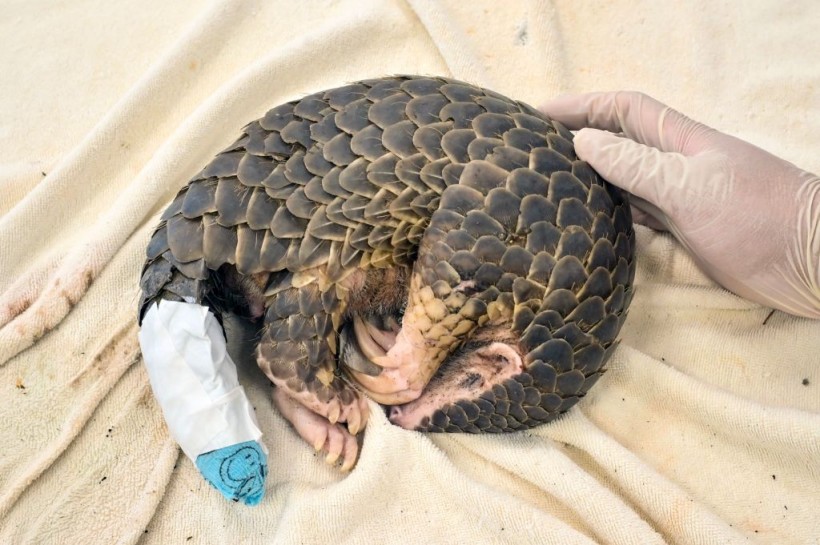In a remarkable feat of engineering, scientists at the Max Planck Institute for Intelligent Systems in Stuttgart have unveiled a medical robot that draws inspiration from the extraordinary body of a pangolin.
This soft robot, controlled by magnetic fields, possesses a flexible structure that enables it to function as a miniature surgeon within the human stomach. The research showcases the robot's ability to change shape to adapt to challenging environments, emit heat, and perform various medical tasks.

A young pangolin rests after receiving medical treatment on its tail, believed to have been injured during an attack by dogs, at the Leofoo Village Zoo in Hsinchu, northern Taiwan on August 31, 2022.
Robot Inspired by Pangolins
Pangolins are the only mammals covered entirely in hard scales composed of keratin, similar to human hair and nails. The scales interlock, seamlessly connected to the soft skin beneath, allowing pangolins to swiftly curl up into a protective ball when threatened.
Driven by the pangolin's ability to coil its scale-covered body rapidly, the scientists from the Physical Intelligence Department at the Max Planck Institute for Intelligent Systems embarked on an ambitious endeavor.
Led by Prof. Dr. Metin Sitti, they created a robot consisting of soft and hard components that mimic the pangolin's capacity to transform into a spherical shape at a moment's notice. In a remarkable addition, this robot possesses the ability to emit heat when required.
The research paper, authored by Ren Hao Soon and his colleagues, outlines the robot's design, measuring a mere two centimeters in length. It comprises two layers: a soft polymer layer embedded with magnetic particles and a hard layer composed of metal elements arranged in overlapping configurations.
Despite the presence of solid metal components, the robot retains its softness and flexibility, making it suitable for internal use within the human body.
Read Also: New Robot Vacuum Can Climb Stairs - MIGO Ascender Is Now Available for Preorders but There's a Catch
Controlling the Robot
Through exposure to a low-frequency magnetic field, the researchers gain control over the robot, enabling them to roll it up and maneuver it with precision.
The metal elements protrude akin to the pangolin's scales, ensuring that the surrounding tissue remains unharmed. Once curled up, the robot can transport various substances, including medicines, with the vision of navigating through the human digestive system.
The robot's versatility extends beyond its mobility. When subjected to a high-frequency magnetic field, the built-in metal components heat up to temperatures exceeding 70 degrees Celsius.
This capability allows the robot to contribute to critical medical procedures, such as treating thrombosis, cessation of hemorrhage, and removing tumor tissue.
The rarity of untethered robots, which can move freely while emitting heat through hard metal components, underscores the significance of the pangolin-inspired creation.
Promising prospects emerged as the robot could potentially access the most delicate and constricted regions of the human body, ensuring minimally invasive procedures while providing necessary thermal energy. The findings of the team were published in the journal Nature Communications.
Related Article: Jizai Arms is Using AI to Control Robotic Arms Strapped on Your Back, Like the 'Iron Spider' Spider-Man Suit










